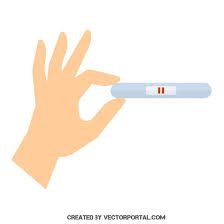Getting pregnant is a significant life event. After confirming a positive pregnancy test, scheduling a doctor visit is a valuable next step in promoting a healthy pregnancy. Understanding the role of an OBGYN, how pregnancy tests work, and when to schedule an appointment can provide clarity during this process.
What Is an OBGYN?
An OBGYN is a physician specializing in obstetrics and gynecology. Obstetrics focuses on pregnancy and childbirth, while gynecology pertains to the health of the female reproductive system. OBGYNs are trained to provide care through every stage of pregnancy and delivery. Their medical training and advanced expertise make them uniquely qualified to guide you through your pregnancy.
What Services Do They Provide?
OBGYNs provide care for expectant mothers, fostering the health and well-being of both parent and baby throughout pregnancy. From initial confirmation to ongoing support, their services are comprehensive and tailored to meet your specific needs.
- Pregnancy Confirmation: Medical-grade urine or blood tests and ultrasounds confirm pregnancy and assess health markers like hormone levels.
- Prenatal Care: Routine ultrasounds, genetic screenings, and health monitoring for both mother and baby.
- Health Guidance: Advice on nutrition, exercise, medications, and overall wellness throughout pregnancy.
- Support: OBGYNs address concerns and provide resources to make the journey smoother.
With their expertise, OBGYNs help monitor every stage of pregnancy, making sure you are informed every step of the way.
How Do Pregnancy Tests Work?
Pregnancy tests work by detecting the presence of human chorionic gonadotropin (hCG) in your urine or blood. hCG is a hormone produced by the placenta shortly after the embryo attaches to the uterine lining. Its levels increase rapidly during the early stages of pregnancy, making it a reliable marker for confirmation.
Most home pregnancy tests are designed to measure the hCG levels in your urine. These tests typically deliver accurate results if used as directed. For higher accuracy, it’s advised to take the test using first-morning urine, as it contains the highest concentration of hCG. Laboratory tests can confirm pregnancy with even greater precision and can detect lower levels of hCG earlier than urine tests.
What Does a Positive Mean?
A positive pregnancy test indicates that hCG has been detected, which is a strong sign of pregnancy. While at-home test kits are quite accurate, medical confirmation is recommended. False positives are rare but can occasionally occur due to specific conditions or medications.
A positive test result signals the need to begin prenatal care promptly. Prenatal care helps monitor the progression of the pregnancy and address any potential risks. Starting care early can improve the chances of a healthier pregnancy for both the mother and the baby.
When Should You See a Doctor?
It is recommended to schedule your first appointment with an OBGYN as soon as your pregnancy test comes back positive. This appointment may not happen for multiple weeks. This timing allows adequate monitoring of the pregnancy’s progress and the opportunity to confirm the baby’s heartbeat via ultrasound. If complications such as irregular periods or a history of pregnancy-related conditions exist, an earlier visit may be necessary.
Book an Appointment Now
Scheduling a doctor’s visit after a positive pregnancy test is a valuable step in preparing for a healthy pregnancy. Whether it’s confirming the test results, understanding your pregnancy milestones, or establishing a plan for prenatal care, your OBGYN is there to guide you every step of the way. Take the first step today by booking an appointment with an OBGYN.

